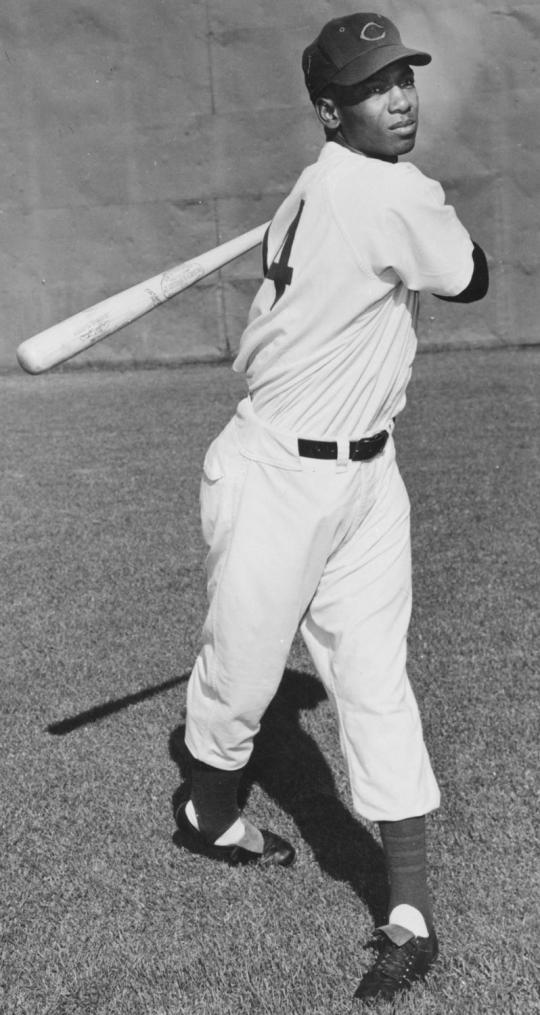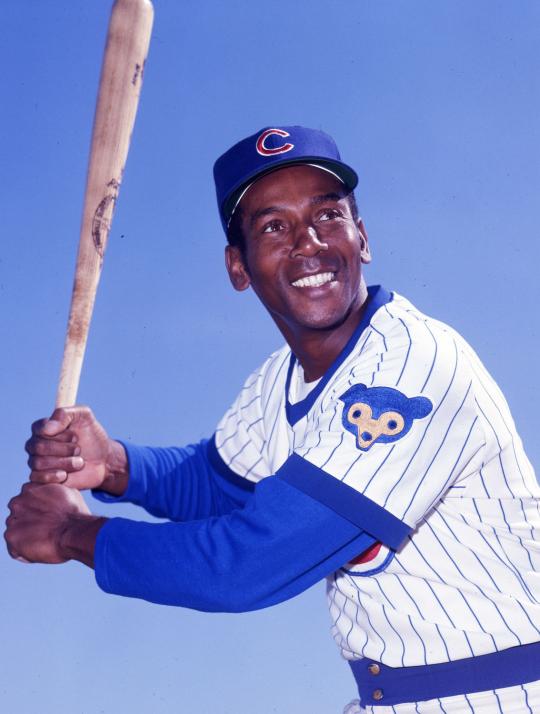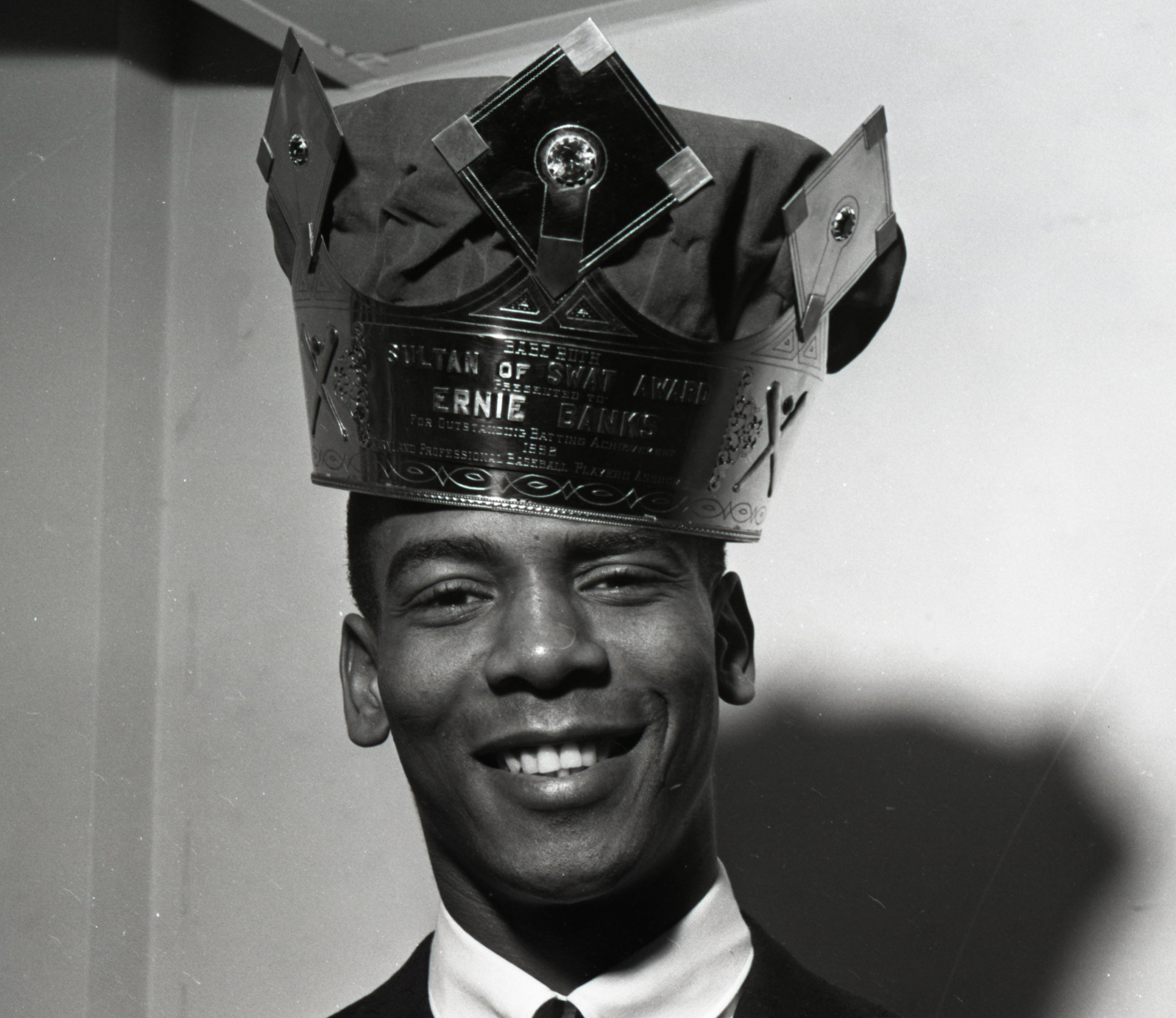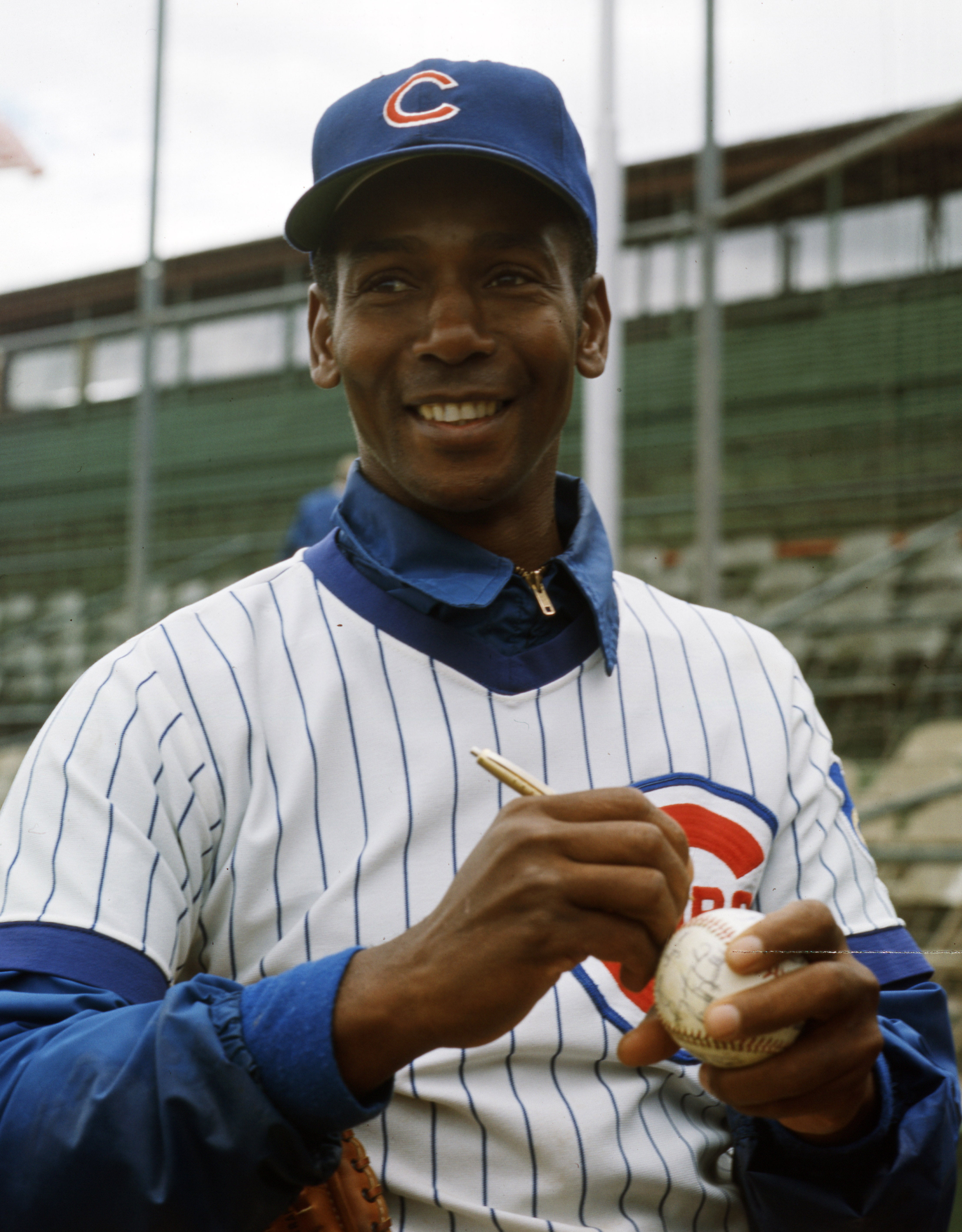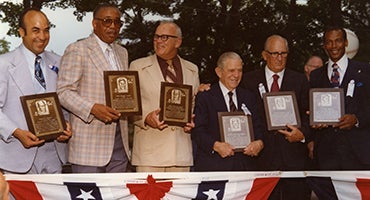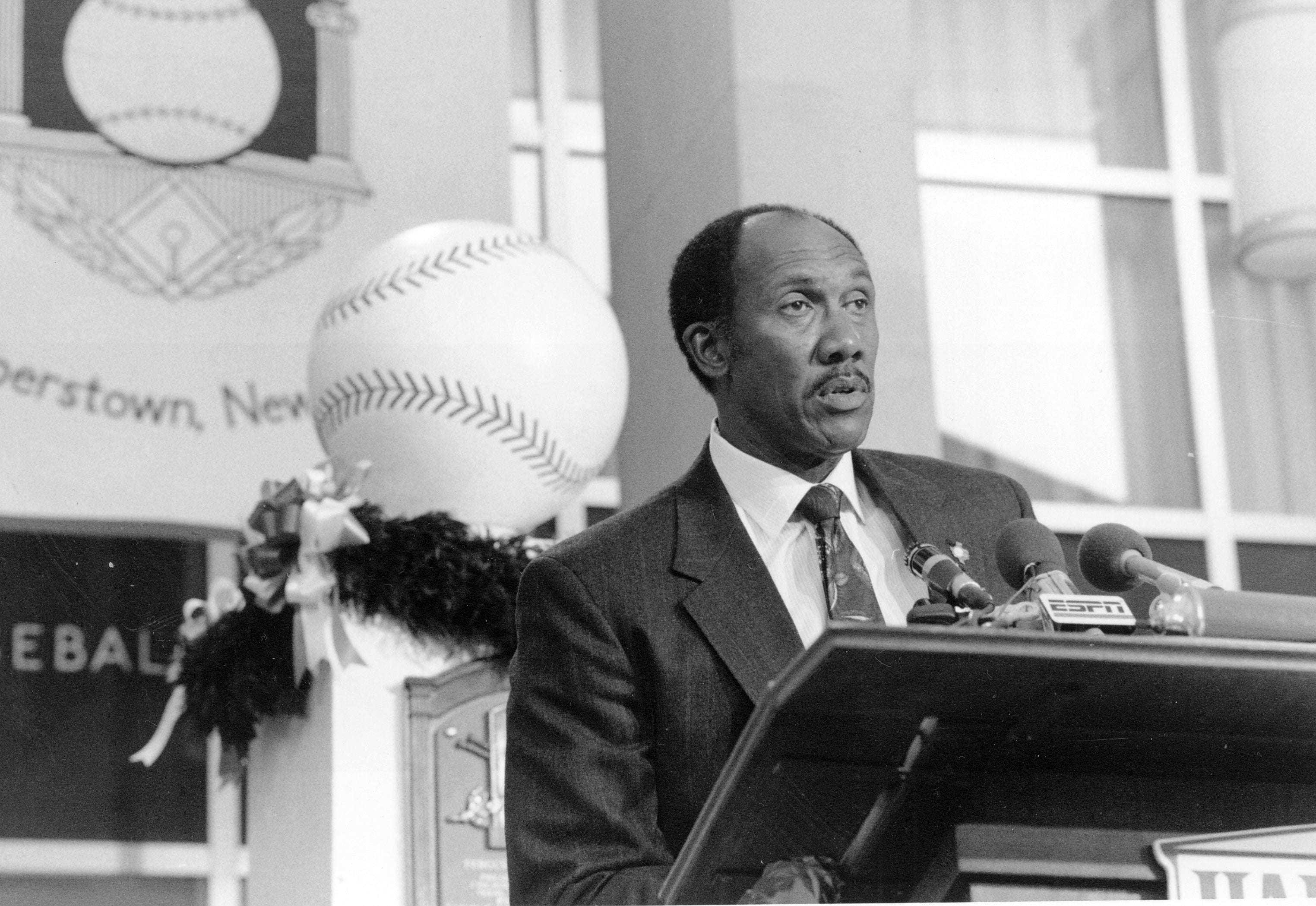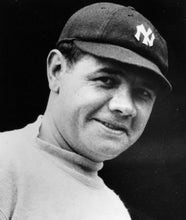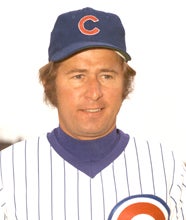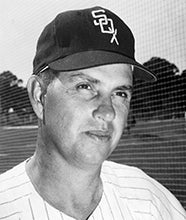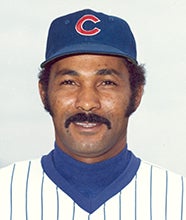- Home
- Our Stories
- Banks’ 500th home run puts him in rare company
Banks’ 500th home run puts him in rare company
The day began with rain on May 12, 1970, in Chicago, leaving that afternoon’s Cubs vs. Braves game at Wrigley Field very much in doubt.
Ernie Banks, however, could always provide sunshine.
With the skies clearing in the bottom of the second inning, Banks hit a 1-and-1 pitch from Pat Jarvis over the left field wall for his 500th career home run. With the blast, Banks became just the ninth member of the 500-home run club.
Cubs Gear
Represent the all-time greats and know your purchase plays a part in preserving baseball history.
Hall of Fame Membership
There is no simpler, and more essential, way to demonstrate your support than to sign on as a Museum Member.
Banks, who had entered the season three home runs short of the 500 mark, said Jarvis put the ball “right where I wanted it.”
“I felt the ball had a real good chance (off the bat),” Banks told the Chicago Tribune of the inside fastball that became home run No. 500. “(The pressure of hitting No. 500) hurt my timing for a while, but my rhythm seems to be back now.”
At 39 years of age, Banks was entering the final years of his legendary career. He had struck out 106 times in 1969 – the first year of his career he topped the 100-K mark – but still drove in 106 runs, earned his 14th All-Star Game selection and finished 12th in the National League Most Valuable Player voting.
At the time of Banks' 500th home run, Babe Ruth topped the all-time list with 714. Willie Mays (606) and Hank Aaron (568) were second and third on the list – and the only other active players besides Banks with at least 500 home runs.
The historic ball hit by Banks ricocheted off the bleachers at Wrigley Field – only 5,264 fans attended the game – and back onto the field, where Braves left fielder Rico Carty retrieved it and delivered it to Fergie Jenkins in the Cubs’ bullpen.
“I touched a milestone,” Jenkins told the Chicago Tribune. “We are all glad for Ernie, but I knew he’d get it soon.”
Banks’ home run cut an early two-run Atlanta lead in half, and the Cubs rallied to win the game in the 11th inning on a Ron Santo single. In the ninth, the future Cooperstown connection was even greater when Billy Williams homered off Hoyt Wilhelm to send the game into extra innings.
“(Banks) is an inspiration to the older guys as well as the rookies,” said Cubs pitcher Phil Regan, who picked up the victory that day. “Sometimes we complain about the travel or the conditions or something, and then we see Ernie lifting everybody up. All he wants to do is go out there and play ball.”
But injuries – including an arthritic left knee that landed him on the disabled list for the first time in his career – limited Banks to just 72 games in 1970. And after appearing in just 39 games in 1971, Banks retired.
His final totals: 512 home runs, 1,636 RBI and back-to-back NL MVP Awards in 1958 and 1959.
“I’m not discouraged,” Banks told United Press International during his final season in 1971. “Baseball is still fun to me, and I’d like to keep playing as long as I’m wanted.”
Craig Muder is the director of communications for the National Baseball Hall of Fame and Museum

